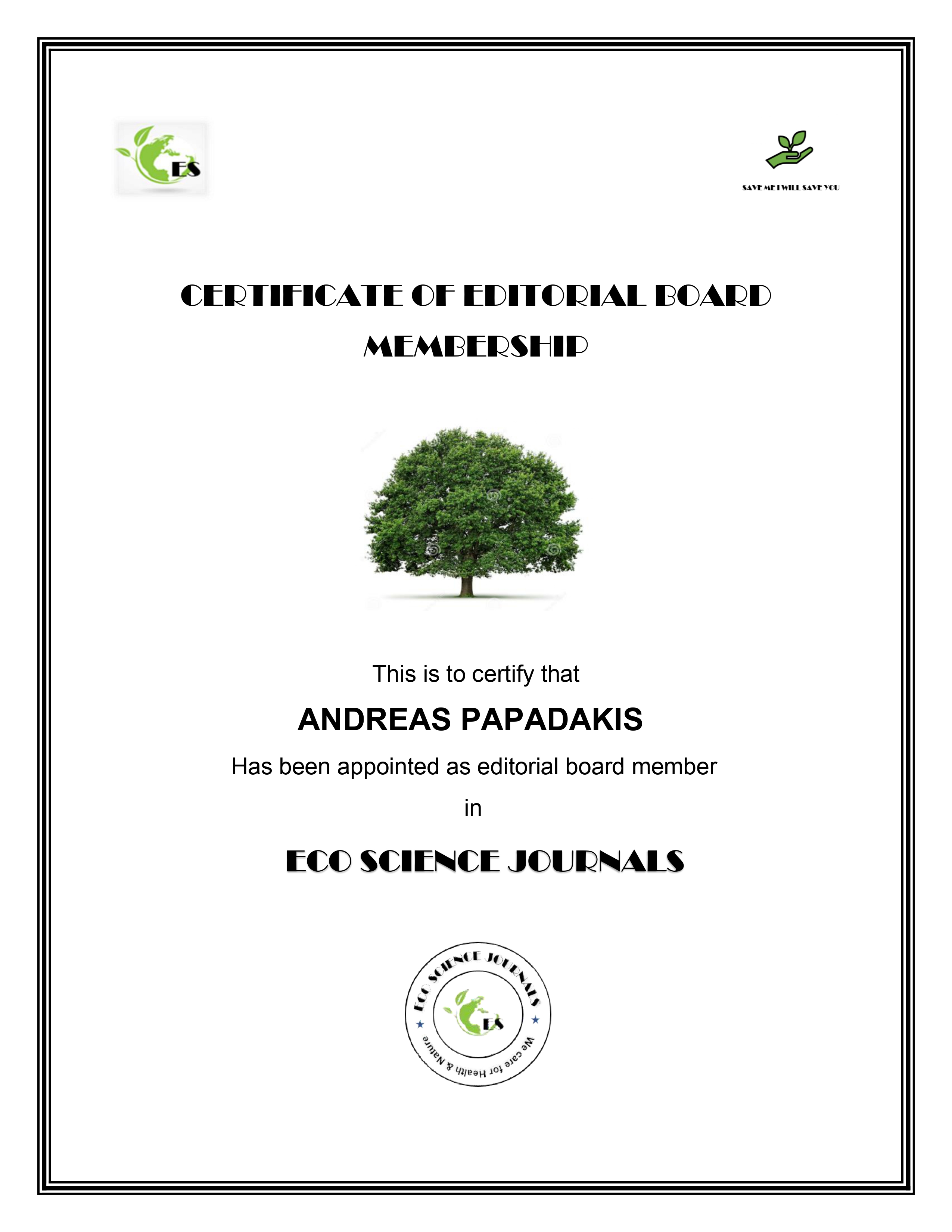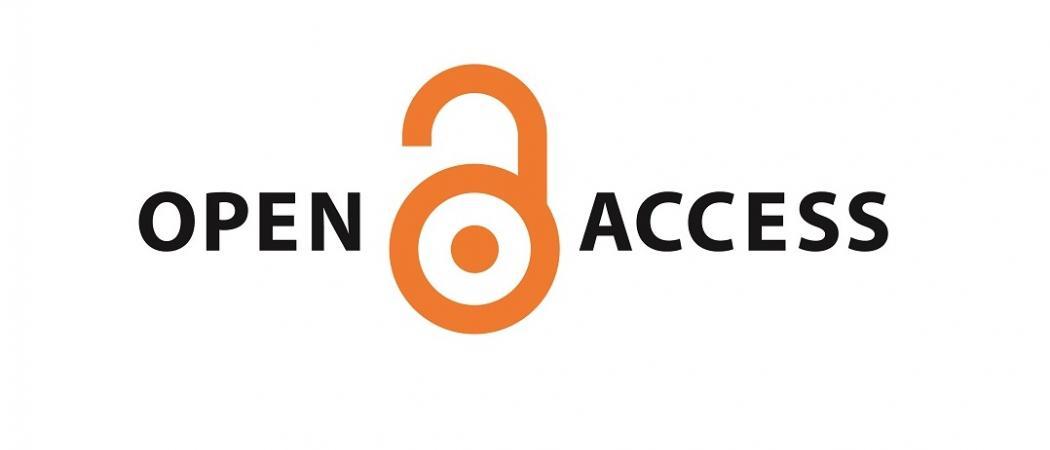Andreas Papadakis
Eco Science Journals

Editor Name: Papadakis Andreas
Country: Greece
Educational Qualification:Â
Designation:Â Professor:
Department: Department of Chemistry
Email:Â andreas.papadakis6@gmail.comÂ
Research Interest: Chemistry - Pharmacy – Medicine
Biography:Â
Working ExperienceÂ
Biology teacher at Private Grammar School Limassol (12/2017- present).
EducationÂ
• Erasmus + Placement in Laboratory of Biophysics and Biophysical (04/2017 - 07/207)
• Chemistry (Professor: Tuomas Knowles) Department of Chemistry, University ofÂ
• Cambridge, UKÂ
• Master’s Student in Medicinal Chemistry - Drug discovery and Research (Departments of Chemistry - Pharmacy – Medicine, University of Patras, Greece) (10/2015 – 09/2017). Thesis Title: Genetic association study of JAK2 and SOCS1’s variants in Myasthenia gravis patients. Master’s Grade: 9.1 /10 - ExcellentÂ
• Erasmus+ Placement, Department of Neuroscience, Physiology, Behavioral neuroendocrinology, Uppsala University, Sweden (03/2015 - 06/2015)
• Undergraduate student, Department of Biology, School of Natural Sciences, University of Patras, Greece (10/2010– 08/2015:)Â
• Bachelor’s grade: 6.52 /10 – Very Good (BSc in Biology)Â
• Thesis title Mutant KRAS promotes malignant pleural effusion formation (Published - Nature Communications)
Research Skills
• Mouse handling (intraperitoneal and retroorbital injections, anesthesia, lung isolation)
• Zebrafish handling
• Cell culture
• Transfection with plasmid DNA
• Construction of mutant Κras eukaryotic vectors
• MTT assay (cell proliferation)
• Western blot
• ELISA
• SDS- PAGE Electrophoresis
• Immunofluorescence microscopy
• In vivo tumor xenograft and malignant pleural effusion models
• Real time in vivo bioluminescence imaging
• cDNA synthesis
• DNA isolation
• RNA extraction
• PCR
• Real Time PCR (qPCR)
• Microfluidic chip design (CAD software)
 Soft lithography
• Bright field and fluorescence microscopy
• Plate reader experiments
• Microfluidic techniques
• Kinetic measurements
REFERENCE ESSAYS*
1. Neuroimaging»
2. Genotype analysis of glutathione’s transfer.
3. Tumors of the central nervous system.
4. Diagnosis and Cure of Brain Tumors.
5. Invasive species – Aquatic Ecosystems.
6. Îœolecular Therapy in the MicroRna Era.
7. Properties of erythrocyte membrane.
Note: These essays are written in Greek as part of the assessment of different undergraduate courses I have attended
Publications:
1. Agalioti T, Giannou AD, Krontira AC, Kanellakis NI, Kati D, Vreka M, Pepe M, Spella M, Lilis I, Zazara DE, Nikolouli E, Spiropoulou N, Papadakis A, Papadia K Voulgaridis A, Harokopos V, Stamou P, Meiners S, Eickelberg O, Snyder LA, Antimisiaris SG Kardamakis D, Psallidas I, Marazioti A, Stathopoulos GT (2017) ‘Mutant KRAS promotes malignant pleural effusion formation’, Nature Communications, 8, p. 15205. doi: 10.1038/ncomms15205. (Nature Communications 2017)Â
2. Zoi Zagoriti, George Lagoumintzis, Gianluca Perroni, George Papathanasiou, Andreas Papadakis, Vincenzo Ambrogi, Tommaso Claudio Mineo, John S. Tzartos, Konstantinos Poulas Journal of Neuroimmunology. DOI: https://doi.org/10.1016/j.jneuroim.2018.03.008 (Journal of Neuroimmunology 2018)















.png)





